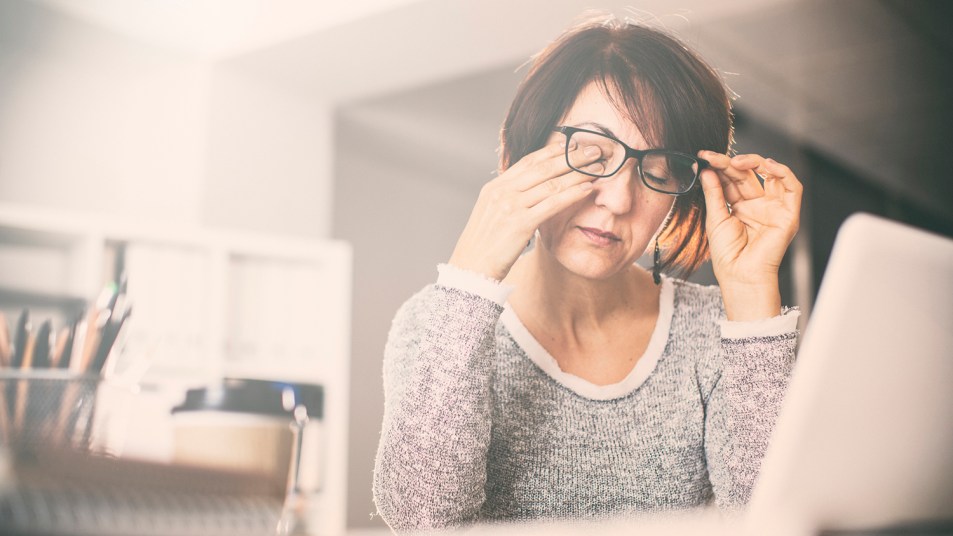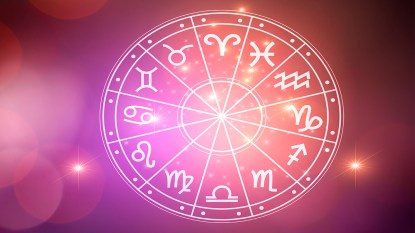Fighting Fatigue? This Simple Remedy Could Be the Cure

For Sofia Wilson, 44, getting through the day without a nap was a struggle. Then she discovered the surprising culprit for her fatigue — and the easy remedy that changed everything. If you’re feeling exhausted, it could be the answer for you, too.
How long was I asleep? Sofia Wilson wondered to herself as she jolted awake to a stranger pounding on her window. She had nodded off at the wheel of her car in the grocery store parking lot. “As I snapped into consciousness, I was mortified,” Sofia recalls. “The Good Samaritan looked at me with panic, thinking I was in distress, then with pity, which was humiliating. She probably thought I was under the influence, but I was so exhausted that I couldn’t keep my eyes open.”
A Vicious Circle of Fatigue
“My insomnia began about six years ago. I remember my mom listening to all-night radio shows because she couldn’t sleep as she got older, so when I started having trouble, I thought my insomnia ran in the family.
“I resigned myself to my new reality, which meant getting up at 4 AM because I couldn’t seem to stay asleep or fall back asleep if I woke up. As a result, I never felt refreshed and was usually so tired that by 11 AM, I could no longer fight the head bobs in my daily morning meetings and would turn to my car as a place of respite.
“Nearly every day, I used my break or lunchtime to sneak out for a nap. I didn’t have the energy to perform as well as I knew I could as a health-care administrator. Even worse, I couldn’t care for my kids, then 10 and 8, the way I wanted. I had no energy to play with them or even watch a movie together. My fatigue started affecting my emotional and mental well-being. I battled guilt over not being the mom that my kids deserved. My mood began to sink, and my outlook became bleak.
“As the months, and then years, went by, my insomnia worsened the panic disorder I was already living with. My doctor explained how the added stress and grief from the death of my mother had ramped up my anxiety and made sleeping even tougher. That led to feeling like I was stuck in a cycle of stressing about not sleeping, then not being able to sleep because of stress. The sleep medicines my doctor prescribed weren’t of interest to me; I didn’t want to run the risk of side effects or addiction. But my doctor didn’t have any other suggestions.”
An Answer at Last
“Then a year ago, a friend of mine shared a breathing exercise that her mother relied on for a restful night’s sleep. She said it was based on a technique recommended by Andrew Weil, M.D., and she was so enthusiastic about it, I knew I had to try it. What do you have to lose? I asked myself as I got ready for bed.
“After lying down, I exhaled fully through my mouth until my lungs felt empty. Then, in my head, I counted six to eight seconds while breathing in through my nose, filling my lungs as much as possible, then exhaling through my mouth. I repeated the process six to eight times, envisioning an image that meant nothing to me (like a pink triangle) to help me focus on my breathing.
“The first night I tried it, I was out like a light. But the next few nights, I had to tweak the technique. When I tried lightly humming a monotone sound every time I exhaled, it worked, helping me turn off my brain. I couldn’t believe that such a simple trick could restore my sleep and energy.
“A few weeks after making the exercise part of my bedtime routine, I started researching online to find out how it worked. I learned that this deep, diaphragmatic breathing allows more carbon dioxide to enter the bloodstream, which can quiet parts of the brain that control the anxiety response. It made sense because my anxiety had been so high.
“I also realized that during the day, my breath could be shallow and erratic, and there were times when I stopped breathing. Plus, I sighed and yawned a lot, a sign I was breathing through my chest, which contributes to fatigue. So I started focusing on breathing with my diaphragm during the day as well.
“These simple changes were a godsend. I’m breathing better all day and getting restful, restorative sleep, which helps me better manage my anxiety. And my energy is back! I can play with my kids and even watch movies without nodding off. No more retreats to my car as my bedroom on wheels!”
A version of this article originally appeared in our print magazine, First for Women.












